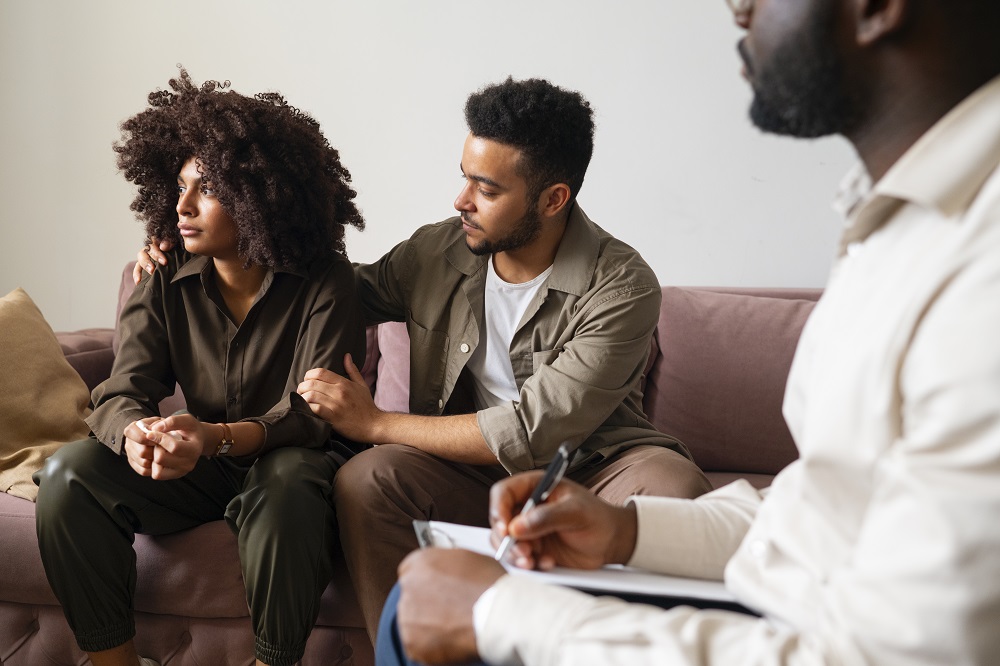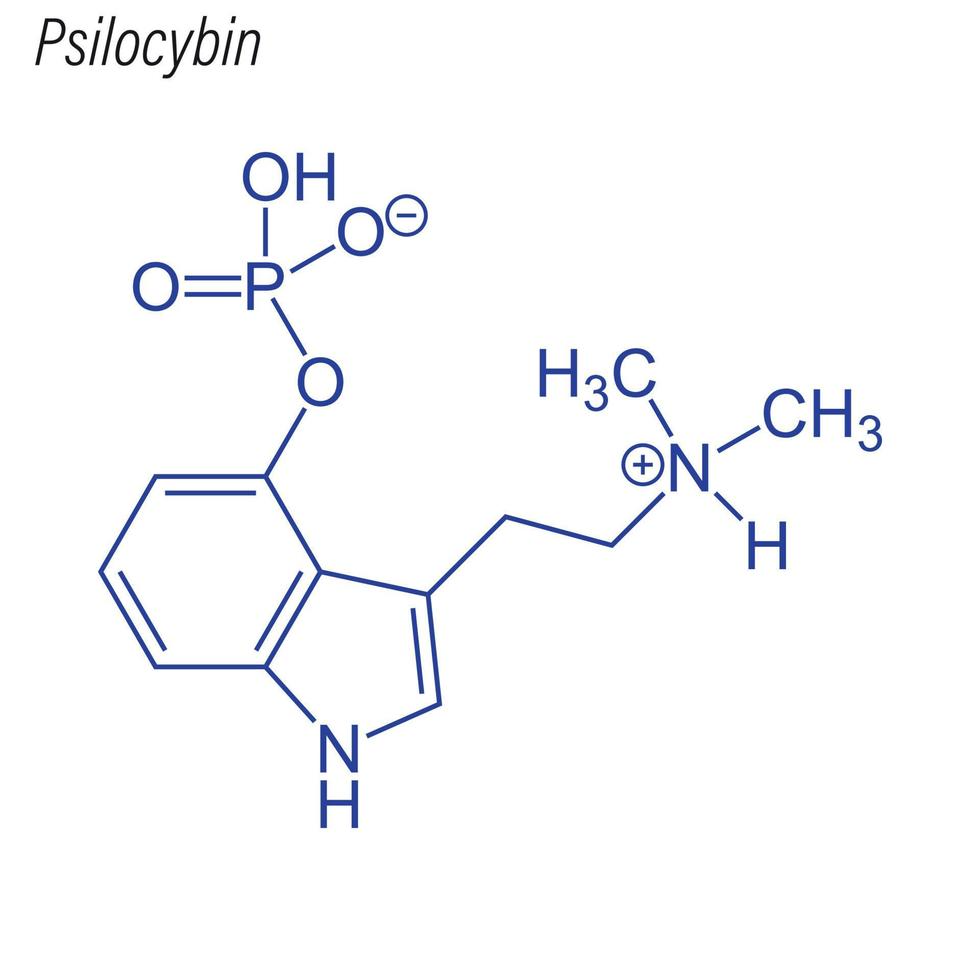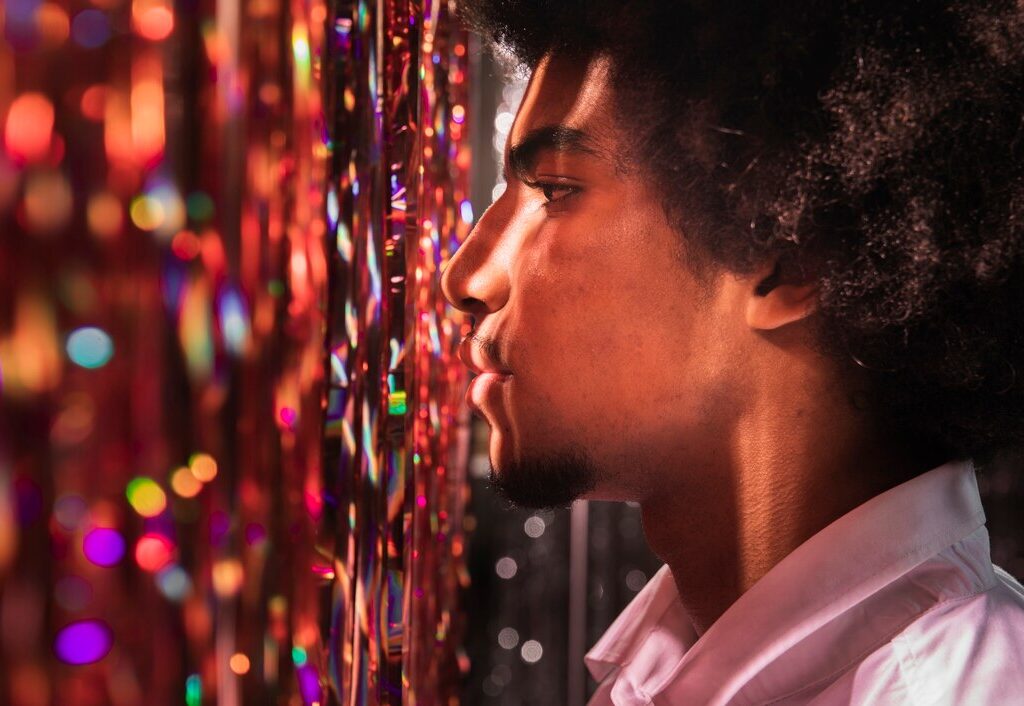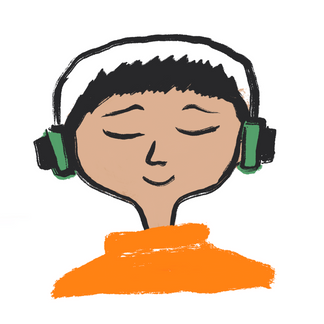Psilocybin-Assisted Psychotherapy (PAP)
Home > Psilocybin-Assisted Psychotherapy (PAP)
We are excited to announce that beginning in 2025 Psilocybin-Assisted Psychotherapy is allowed in Colorado. Journey Therapeutics is excited to bring this wonderful healing opportunity to many suffering from mental health disorders like PTSD, treatment-resistant depression, anxiety, depression and end of life concerns beginning mid-year 2025.
Stay tuned for announcements
Psilocybin-Assisted Psychotherapy
Our therapist is trained as a Psychedelic-Assisted Psychotherapist by the Integrative Psychiatry Institute. This year-long program delves deep into the use, and potential use, of psychedelics in general for various mental health conditions. Throughout years providing mental health therapy (talk therapy) for hundreds of clients, this is the first time that a therapeutic modality comes to the scene with such high potential for helping some of those with the most difficult challenges. While Ketamine is effective, the potential of Psilocybin is even more exciting, and the fact that it is a natural plant is even better. Starting in 2025, we will be offering Psilocybin-Assisted Therapy to our clients in Colorado and for those California clients that wish to travel to CO for treatments. If you would like to explore the possibility of working with us using Psilocybin, please e-mail me at [email protected] to discuss eligibility and next steps.
What Is Psilocybin-Assisted Psychotherapy?
Psilocybin-Assisted Psychotherapy (PAP) is a natural and holistic modality in which Psilocybin (Magic Mushrooms) are used as a complement to psychotherapy to assist eligible clients enter an extraordinary state of consciousness. It is during this state or journey that scientists describe an increase in neuro-plasticity that, with the help of a therapist, gives the client an opportunity to change behaviors, thoughts, and reactions. This can lead to extraordinary breakthroughs and sustained symptom improvements, at times with a single session.
Because Psilocybin is not a prescription medication, no medical team is necessary and you can experience PAP with your licensed Clinical Facilitator (Licensed Therapist). We will work with you to screen for the few safety issues that may arise with Psilocybin, determine eligibility, customize a treatment plan, and guide you through your journey. Following the Journey, your therapist will continue to work with you to interpret your experience and integrate the changes you desire into your everyday life.


What is Psilocybin?
Psilocybin is a natural substance found in certain species of mushrooms (Psilocybe cubensis being the most common). Ancient healers have used psilocybin for generations in spiritual healing with documented and tremendous success. Today, scientists are studying the use of psilocybin for the treatment of many mental health issues including treatment-resistant depression, anxiety, PTSD. Psilocybin is also helping patients with the extreme success associated with end-of-life challenges.
When ingested, psilocybin is converted into psilocin, which then interacts with serotonin receptors, particularly the 5-HT2A receptor 1. This interaction leads to a cascade of neurochemical events, altering brain activity and communication patterns 1.
Psilocybin is ingested during treatments either whole or ground into a tea with lemon (lemon actually makes it work better).
Please e-mail me at [email protected] to discuss eligibility and next steps.
Describe the Psilocybin Experience
A Psilocybin experience can last from 4 to 6 hours (typically). During a therapeutic Psilocybin experience, the client often feels a deep sense of relaxation and emotional openness. As the Psilocybin takes effect, they may see vivid colors, geometric patterns, or meaningful visions tied to personal experiences (Carhart-Harris et al., 2018). Emotions may surface intensely, leading to moments of joy, insight, or catharsis (Griffiths et al., 2016). The therapist provides a calming presence, ensuring the client feels safe and supported throughout the journey. As the effects wane, the client experiences a gentle return to baseline, often with a newfound sense of clarity or peace. Before allowing the client to go home, the therapist ensures they are fully grounded, oriented to reality, able to communicate coherently, and free from distress (Johnson et al., 2008). Only when the client demonstrates stability and emotional integration is the session considered complete.
References:
Carhart-Harris, R. L., et al. (2018). “Neural correlates of the psychedelic state as determined by fMRI studies with psilocybin.” Proceedings of the National Academy of Sciences, 115(7), 201809988.
Griffiths, R. R., et al. (2016). “Psilocybin produces substantial and sustained decreases in depression and anxiety in patients with life-threatening cancer: A randomized double-blind trial.” Journal of Psychopharmacology, 30(12), 1181-1197.
Johnson, M. W., et al. (2008). “Human hallucinogen research: Guidelines for safety.” Journal of Psychopharmacology, 22(6), 603-620.


How Does Psilocybin-Assisted Psychotherapy Work?
Patient in therapy with member psychotherapist
Your initial consultation with your Therapist/Facilitator includes a health history and safety screening.
Preparation Session: Before any substance is administered, patients undergo thorough psychological evaluations to ensure they are suitable candidates for the treatment. This phase also helps establish rapport with their therapists.
Your PAP administration session will take place at a licensed facility (currently in Colorado). You will meet with the licensed grower and self-administer the Psilocybin dose. Your therapist/facilitator will attend the entire session with you for support (at times up to 8 hours).
Integration session: (often thought of as the most important part of the process) will begin within 24 hours of your session and include several visits as needed to help you interpret the memories, thoughts, and visions that you experienced during your session.
Follow-up mental health visits, if needed, are at the discretion of the client and can often be completed with your regular mental health professional. For challenging cases, clients may choose to repeat the sessions after several months as a "tune up" of sorts.
Please e-mail me at [email protected] to discuss eligibility and next steps.
What is The Cost?
The cost of Psilocybin-Assisted Psychotherapy can vary but here are some of the basic costs. Note: Colorado has yet to finalize the rules and last minute changes may effect these costs.
Initial evaluation and preparation sessions – May be covered by insurance or $125 private pay
Administration (dosing) session (Facilitator) – $1,200 – $1,800
Healing Center – TBD but we expect it to be $300 – $500 for the dosing day
Integration sessions – May be covered by Insurance of $125 each (3 minimum and as needed after that.
Travel, food and lodging is not covered and will be paid by the client.

Need Help?
FAQs
How does psilocybin Feel?
The effects of psilocybin, which most individuals describe as pleasant and the most meaningful of their lives. A psilocybin journey can last for approximately three-to-five hours. The effects of psilocybin are varied and can create the experience of feeling a heightened sense of reflexes in the body or a loss of connection with the physical body. Individuals also experience shifts in perception that can often feel expansive and profound. The feeling of euphoria or ego dissolution can result with the individuals experiencing a deep sense of interconnectedness with the natural world surrounding him/her/them. This interconnectedness can enable the individual to experience profound spiritual growth and a more meaningful insight into thoughts, feelings, behaviors and interpersonal interactions. Motor and verbal abilities can be reduced, with the individual lying down in a comfortable position during the experience. Once these effects of psilocybin subside, the individual is accompanied by a sitter and spends the remainder of the journey processing and reflecting on his/her/their journey. While individuals experience ongoing insights into their journeys, they are unconditionally supported and given ample space (by the licensed facilitator) to articulate the outcomes of their experience. Ultimately, individuals feel as if the insights gained are clear and provide a place for growth and grounding.
How do I know the Psilocybin I take is safe?
In Colorado, the safety of psilocybin used in licensed healing centers is ensured through strict regulations and oversight.
Here are some key points:
Regulation and Licensing: The Colorado Department of Revenue (DOR) and the Department of Regulatory Agencies (DORA) regulate and license natural medicine businesses, including healing centers, cultivations, manufacturers, and testing facilities2.
Testing: Psilocybin products must be tested by licensed testing facilities to ensure they meet the state’s safety standards. These facilities examine the dried fungus and related products for purity, potency, and contaminants.
Trained Facilitators: Facilitators at healing centers must undergo rigorous training and certification to ensure they can safely guide and support clients through their psilocybin experiences.
Controlled Environment: Healing centers provide a safe and monitored environment for psilocybin administration, reducing the risk of adverse effects and ensuring that any issues can be promptly addressed.
These measures help ensure that the psilocybin you take in a licensed healing center is safe and effective.
Can I choose my dose and type of Psilocybin?
In Colorado, the administration of psilocybin for therapy is regulated to ensure safety and efficacy. While you may have some input on your treatment, the specific dose and type of psilocybin are typically determined by trained facilitators based on your individual needs and therapeutic goals. This approach ensures that the treatment is tailored to your unique circumstances and is administered safely.
What is the difference between a Clinical Facilitator and a Facilitator (Non-Clinical)?
In Colorado, the roles of a natural medicine Clinical Facilitator and a natural medicine Facilitator (Non-Clinical) differ primarily in their qualifications and scope of practice:
Clinical Facilitator:
Qualifications: Must hold an active and valid license in Colorado to practice in a medical or mental health profession, such as a physician, psychologist, or licensed clinical social worker. Scope of Practice: Can diagnose and treat medical or mental health conditions. They are trained to handle more complex cases and provide a higher level of care.
Facilitator (Non-Clinical):
Qualifications: Does not require a medical or mental health license. Must complete an approved facilitator training program, which includes coursework on natural medicine services, ethics, and supervised practice.
Scope of Practice: Focuses on guiding and supporting clients through their natural medicine experiences without diagnosing or treating medical or mental health conditions.
Both roles require specific training and certification to ensure safe and effective facilitation of natural medicine sessions
Can I have a bad experience or "Bad Trip" with Psilocybin?
During the psilocybin journey, individuals can experience shifts that occur with emotions and feelings. These shifts must be differentiated by the facilitator/therapist from distress that might require active support. Generally, individuals can experience a vast range of human emotions during the psilocybin journey without a need for intervention. At times, the individual can experience intense emotions, see vivid images, and access the emergence of memories associated his/her/their deeply regressed life experiences and past trauma. They can also experience synesthesia, which involves a stimulation of one involuntary sense that flows and overlaps another sense (seeing colors while hearing music). During the psilocybin journey, challenging experiences can involve increased fear and anxiety, which can lead to distress, without receiving adequate psychological support. As a result, the individual could require reassurance, nurturance, and support from the therapist to allow him/her/them to move through the discomfort of the challenging experience. During challenging experiences (bad trips), the therapist will closely assess the individual and support him/her/them within a safe and nurturing space and until the effects of the psilocybin begin to subside.
Is PAP covered by my insurance?
Currently, psilocybin-assisted psychotherapy is not widely covered by health insurance in the United States. While the American Medical Association (AMA) has approved insurance billing codes for psychedelic therapy, this does not guarantee that insurance companies will provide coverage. The approval of these codes is a step forward, but insurance companies typically require FDA approval of the treatment before considering reimbursement.
Journey Therapeutics will work with you, through our approved health insurance companies, to provide portions of the preparation and integration as standard therapy sessions. This process can help to reduce the overall cost of the service. The cost of the healing center, psilocybin, and the Facilitator are not covered by insurance and will require private pay.
The cost of transportation and lodging in Colorado are also not covered.
Why is the administration of the Psilocybin done in Colorado?
In 2022, Colorado voters passed Proposition 122, which decriminalized the personal use, cultivation, and sharing of psychedelic mushrooms, including psilocybin2. This initiative also paved the way for the establishment of regulated psychedelic-assisted therapy centers, making Colorado one of the first states to offer such treatments legally.
The state has been working on developing guidelines and infrastructure to support this new industry, with the first licenses for therapy centers expected to be issued in 20252. This progressive approach has positioned Colorado as a leader in the field of psychedelic-assisted therapy.
What is an "Approved Healing Center" in Colorado?
An “Approved Healing Center” in Colorado is a facility licensed by the State Licensing Authority to provide and supervise natural medicine services, including psilocybin-assisted therapy. These centers are regulated under Colorado’s Natural Medicine Regulations and must meet specific criteria.
The centers are designed to offer a safe and controlled environment where trained facilitators can guide participants through their therapeutic experiences.
How can I get started?
Getting started with Psilocybin-Assisted Psychotherapy begins with a simple phone or zoom call with our staff to evaluate your eligibility and to determine if you need a Clinical Facilitator or Facilitator for your needs.
Safety is our first concern and there are a few conditions that would require a potential client to receive medical clearance before treatment and a very few that exclude a client from receiving Psilocybin. We will review all of these as well as your concerns and questions during a free consultation.
Contact us to setup your free consultation or sign up for our Interest List so you will begin receiving regular updates on Colorado’s progress toward the first treatments. Please note that we expect Clinical Facilitation to begin late summer and Facilitation to begin in the Fall, both due to licensing delays.
You can contact us in several ways:
Text us at 951-595-7380
Email at [email protected]
Chat at the link on the lower right of each page
Psilocybin and Mental Health: A Comprehensive Guide
Introduction
Psilocybin, the psychoactive compound found in certain species of mushrooms, has long been a subject of fascination, controversy, and research. Historically used in indigenous rituals for centuries, psilocybin has recently gained scientific and medical attention for its potential therapeutic effects on mental health. Amid a global mental health crisis, researchers and policymakers are increasingly considering its use for conditions such as depression, PTSD, and anxiety. This guide explores the history, spiritual applications, scientific research, legal status, and future of psilocybin in mental health treatment.
History of Psilocybin Use
Early Indigenous Use
The use of psilocybin-containing mushrooms dates back thousands of years. Indigenous cultures in Mesoamerica, including the Aztecs and Mayans, used these mushrooms in religious ceremonies and healing practices (Carod-Artal, 2015). The Aztecs referred to them as teonanácatl, meaning "flesh of the gods," and consumed them to commune with spiritual entities and gain insights into the nature of existence. Spanish colonization suppressed indigenous psychedelic use, but rituals continued clandestinely.
Discovery by Western Science
In 1955, amateur ethnomycologist R. Gordon Wasson traveled to Mexico and participated in a Mazatec mushroom ceremony led by curandera María Sabina. His experience, published in Life magazine in 1957, introduced psilocybin mushrooms to Western audiences (Wasson, 1957). This led to the isolation of psilocybin in 1958 by Swiss chemist Albert Hofmann, the scientist famous for discovering LSD (Hofmann, 1968).
The Psychedelic Revolution and Criminalization
During the 1960s, psilocybin and other psychedelics became associated with the counterculture movement. Figures like Timothy Leary and Richard Alpert (later Ram Dass) championed psilocybin as a tool for expanding consciousness (Leary, 1966). However, as the association with anti-establishment movements grew, governments cracked down. In 1970, the U.S. classified psilocybin as a Schedule I drug under the Controlled Substances Act, severely limiting research and medical use (Drug Enforcement Administration, 1970).
Modern Renaissance
Since the 2000s, a renewed scientific interest in psilocybin has emerged. Studies at Johns Hopkins University and other institutions have demonstrated its potential benefits for mental health, prompting reconsideration of its legal status (Griffiths et al., 2016).
Spiritual and Traditional Uses
Indigenous Ceremonial Use
Many indigenous cultures, such as the Mazatec people of Mexico, continue to use psilocybin mushrooms in healing ceremonies (Schultes & Hofmann, 1992). These rituals often involve a curandero (healer) guiding participants through a profound inner journey, aimed at diagnosing illnesses, resolving trauma, or receiving divine wisdom.
Shamanic Healing and Divination
In traditional shamanic practices, psilocybin is seen as a means of accessing other realms of consciousness. Shamans use the visions and insights provided by the mushrooms to offer guidance, predict the future, or heal emotional and physical ailments (Furst, 1990).
Modern Spiritual Revival
In recent years, psilocybin has been embraced by neo-shamanic practitioners, psychedelic retreats, and even some religious movements. Organizations like the Santo Daime Church and the Native American Church incorporate psilocybin and other psychedelics into their rituals, believing them to facilitate spiritual enlightenment and personal growth (Labate & Cavnar, 2014).
Psilocybin for Mental Health: Scientific Research and Evidence
How Psilocybin Affects the Brain
Psilocybin is converted into psilocin in the body, which primarily acts on serotonin receptors in the brain. This leads to altered perception, enhanced introspection, and, in therapeutic settings, emotional breakthroughs. Neuroimaging studies show that psilocybin reduces activity in the brain’s default mode network (DMN), which is overactive in people with depression and anxiety (Carhart-Harris et al., 2012).
PTSD and Addiction Therapy
Research suggests that psilocybin may help individuals with PTSD by allowing them to process traumatic memories without being overwhelmed by fear (Mithoefer et al., 2016). Additionally, studies on smoking cessation and alcoholism have shown that psilocybin therapy can significantly increase long-term abstinence rates (Bogenschutz & Johnson, 2016).
Depression and Anxiety Treatment
Clinical trials at institutions like Johns Hopkins and Imperial College London have demonstrated psilocybin’s potential to alleviate treatment-resistant depression and anxiety, often with long-lasting effects after just one or two doses (Carhart-Harris et al., 2018).
Psilocybin-Assisted Therapy
Psilocybin therapy involves guided sessions where patients take the substance in a controlled setting under the supervision of trained therapists. These sessions often involve preparatory discussions, the psychedelic experience itself, and integration therapy afterward to process insights gained (Johnson et al., 2014).
Current Legal Landscape
Legal Status by Country
United States
While Psilocybin remains federally illegal, cities like Oakland, and Santa Cruz, in California, and states like Oregon and Colorado have decriminalized or legalized its medical use (Oregon Health Authority, 2020).
Netherlands
While dried mushrooms are illegal, psilocybin truffles remain legal and are sold in smart shops (Nutt et al., 2013).
Canada
Some exemptions allow psilocybin for medical patients, and research is expanding (Health Canada, 2021).
Brazil, Jamaica, and Costa Rica
Psilocybin mushrooms are decriminalized or legal, leading to a booming psychedelic tourism industry (Tupper, 2011).
Conclusion
Psilocybin’s journey from ancient spiritual tool to modern therapeutic agent illustrates the evolving relationship between society and psychedelics. As research continues to validate its mental health benefits, legal and cultural landscapes are shifting. While challenges remain, psilocybin presents a promising frontier in addressing some of the most pressing mental health crises of our time. Responsible policies, ethical practices, and continued research will be crucial in shaping its future use.
References
- Bogenschutz, M. P., & Johnson, M. W. (2016). Classic hallucinogens in the treatment of addictions.
- Carhart-Harris, R. L., et al. (2012). Neural correlates of the psychedelic state as determined by fMRI studies.
- Griffiths, R. R., et al. (2016). Psilocybin produces substantial and sustained decreases in depression and anxiety.
- Mithoefer, M. C., et al. (2016). The safety and efficacy of MDMA-assisted psychotherapy for PTSD.
- Wasson, R. G. (1957). Seeking the magic mushroom

